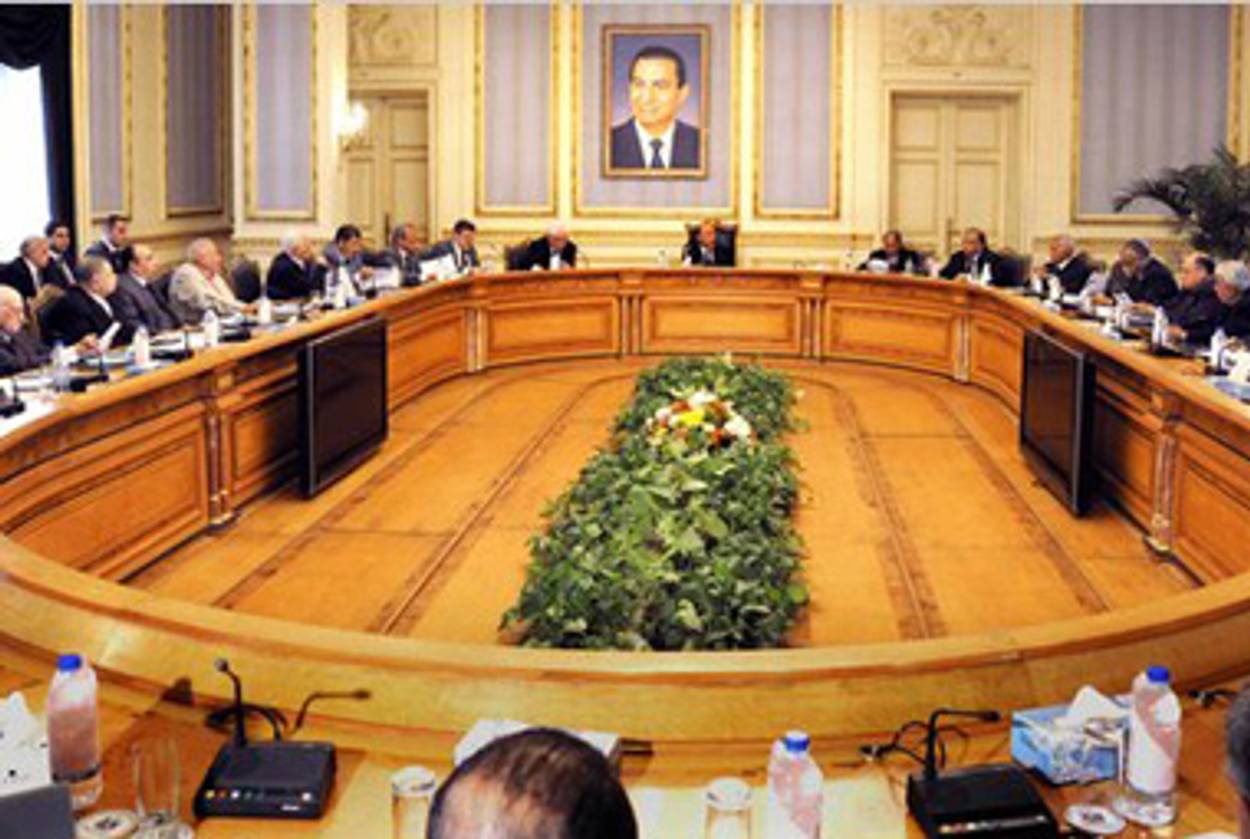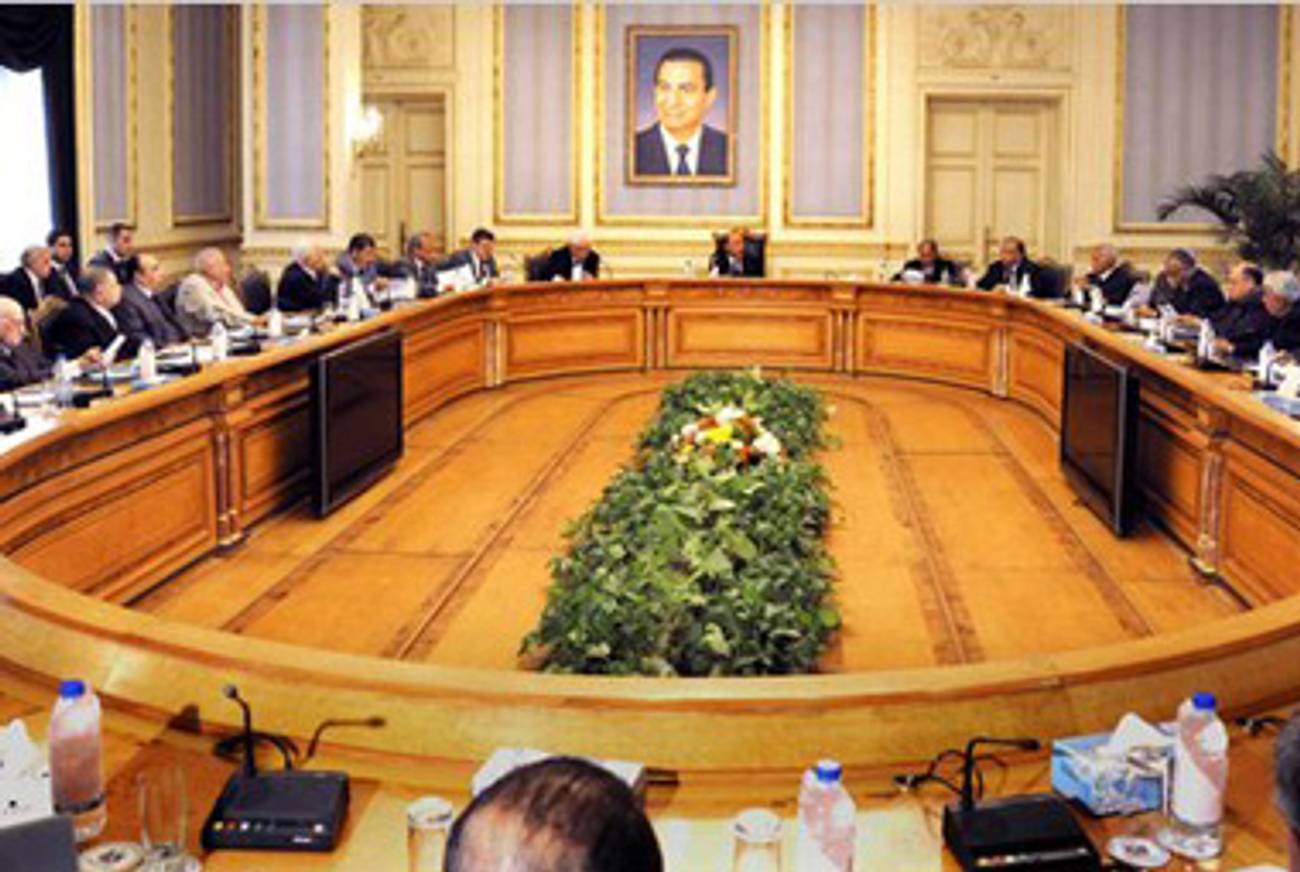Will the Real Brotherhood Please Stand Up?
Group gets a seat at the table, but what does it really want?




With Vice President Omar Suleiman holding nearly unprecedented talks with Muslim Brotherhood representatives, and with Secretary of State Clinton accepting its participation in these negotiations and even President Obama de-emphasizing its importance while at the same time coming to terms with its inclusion (and not denying its “anti-U.S.” ideology), it’s time to try to answer the question: Who is the Muslim Brotherhood, and what does it want?
In some ways, how various experts answer that question is like a Rorschach test, revealing more about them than about the Brotherhood. For example, last week I asked Les Gelb, chairman emeritus of the Council on Foreign Relations, and Bruce Riedel, a former presidential adviser, and they said two exact different things. “The Egyptians should know it’s a problem,” Gelb said of the ascension of the Brotherhood. “and we should know it’s a problem.” What of those in the West who say this fear is overblown? “The naivete in the foreign policy community here is astonishing,” was Gelb’s response. He may as well have been referring to Riedel, who the week before last was telling us to calm down about the Brotherhood, and who told me, “I think it’s also important to recognize they are not al-Qaida and Ayman Zawahiri; in fact Zawahiri spends a great deal of time castigating the Muslim Brotherhood as too moderate and insufficiently supportive of global jihad.”
Riedel suggested that we “test the Muslim Brotherhood, test if their commitment to nonviolence and a political process is sincere.” It looks like that has already begun. And we will find that here the Rorschach analogy breaks down: The Brotherhood is no ink blot; at some point it likely will get some say over how Egypt is run, and some of the experts will be more right than others. Let’s take a look.
The case for more or less accepting the Brotherhood rests primarily as a corollary to the case for Egyptian democracy, made somewhat improbably (though also logically) by arch-neoconservative Bill Kristol: “It was not so long ago, after all, when conservatives understood that Middle Eastern dictatorships such as Mubarak’s help spawn global terrorism,” he argued. “We needn’t remind our readers that the most famous of the 9/11 hijackers, Mohammed Atta, was an Egyptian, as is al Qaeda’s number two, Ayman al Zawahiri.” And democracy in Egypt means the Brotherhood: “The reality is that if we’re going to have a springtime of freedom in Egypt and a democratic process and a government that is more reflective of the Egyptian political situation,” Riedel told me, “the Muslim Brotherhood is going to be a major player.”
Beyond that, you can note, as Riedel has, that the Brotherhood in Egypt long ago renounced violence. Shadi Hamid argues that an empowered Brotherhood is likely to focus on Egypt’s domestic affairs rather than its foreign policy—the main source of American and Israeli concern (he also notes that even the most nightmarish Brotherhood government would be nothing compared to that of Saudi Arabia, that strong U.S. ally). Scott Atran provides an even more novel take: That we have little to fear from the Brotherhood because it is really not that popular, mainly because it has a crystal clear record of failing to advance its agenda over more than eight decades of trying. And, today, Reuel Marc Gerecht argues that as Islamism (specifically of the Sunni variant, which, unlike Iran-like Shiism, has no use for religious hierarchies) comes to associate itself more and more with democracy, it will be forced to reform in a more secular direction.
Bottom line: You needn’t think Egypt’s Brotherhood is composed of “civic-minded people of faith”—which is what a New York Times reporter found—and you can still both advocate its inclusion in these talks and, eventually, in an Egyptian government and simultaneously sleep well while doing so.
But there is an alternative argument, too. There was the Brotherhood spokesperson last week who repeatedly insisted that the group opposes Zionism (indeed, there is the fact that its Palestinian branch is Hamas). There is the fact, as Paul Berman noted in The New Republic, that the Brotherhood’s leading thinker, Yusuf Al Qaradawi, “favors the extermination of the Jews.” (“Oh, Allah, do not spare a single one of them,” he said during the 2009 Gaza conflict, and he wasn’t even just talking about Israelis.)
This must-read blogpost by Ian Johnson is an eye-opener. It turns out the United States has a history of trying to deal with the Muslim Brotherhood that is nearly as long as the Brotherhood’s history itself. Yet the group’s “age-old fundamentalism” remains, and such efforts have ended up proving futile for the West at their very best: “If we look to history, we can see a familiar pattern: each time, U.S. leaders have decided that the Brotherhood could be useful and tried to bend it to America’s goals, and each time, maybe not surprisingly, the only party that clearly has benefited has been the Brotherhood.”
Johnson adds:
The Brotherhood has been a tricky partner. In countries where it aspires to join the political mainstream, it renounces the use of violence locally. Hence the Muslim Brotherhood in Egypt says it no longer seeks to overthrow the regime violently—although its members there think nothing of calling for Israel’s destruction. In Egypt, the Brotherhood also says it wants religious courts to enforce shariah, but at times has also said that secular courts could have final say. This isn’t to suggest that its moderation is just for show, but it’s fair to say that the Brotherhood has only partially embraced the values of democracy and pluralism.
The real answer, as Berman laments, lies in past policies, not current ones: “What if, during World War II, the U.S. effort to secure Arab support against the European fascists had also included a campaign to promote liberal and democratic ideas among our Arab allies?” Berman asks. “What if, in supporting the dismantling of the French and British empires, the United States had made a sustained point, not just a desultory one, of continuing to promote a liberal outlook on world events?” As it is, it seems to me—to borrow from a new memoirist—we are going to have to allow power in Egypt to flow to the popular actors we have, not the ones we want.
Egypt VP, Muslim Brotherhood Hold Landmark Talks [Laura Rozen]
Stand for Freedom [Weekly Standard]
Should We Fear the Muslim Brotherhood? [Slate]
Egypt’s Bumbling Brotherhood [NYT]
Among the Brotherhood [NYT]
How Democracy Became Halal [NYT]
Muslim Brotherhood: ‘We Are Against Zionism’ [JPost]
Washington’s Secret History with the Muslim Brotherhood [NYRB]
The Ambiguous Revolt [TNR]
Marc Tracy is a staff writer at The New Republic, and was previously a staff writer at Tablet. He tweets @marcatracy.